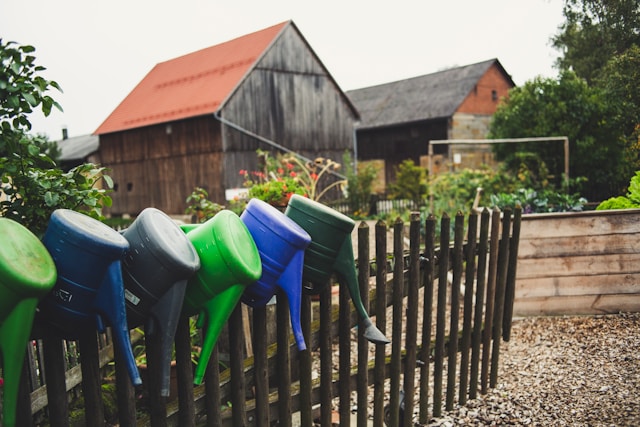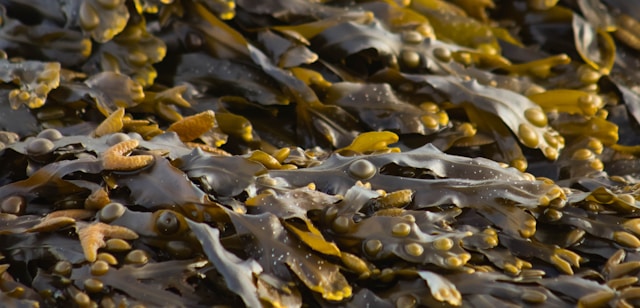Physical Address
304 North Cardinal St.
Dorchester Center, MA 02124
Physical Address
304 North Cardinal St.
Dorchester Center, MA 02124

When it comes to cultivating a thriving raised bed vegetable garden, choosing the right fertilizer plays a crucial role in the health of your plants and the bounty of your harvest. The best fertilizer for a raised bed vegetable garden depends on several factors, including your plants’ specific needs, soil composition, and environmental conditions.
Fertilizers, both organic and synthetic, can enhance the growth and vitality of your vegetable garden. Selecting the right one involves considering the type of vegetables you’re growing, the quality of your soil, and your personal preference for organic or synthetic products. Let’s dive into some popular choices:

Compost is a must-have for any raised bed vegetable garden. While you can buy high-quality compost, many gardeners take pride in creating their own. Compost is made from decomposed organic materials such as leaves, vegetable scraps, kitchen waste, and grass clippings.
Rich in essential nutrients, compost releases these nutrients slowly, providing your plants with sustained nourishment. It also improves soil structure and water retention, ensuring a healthy growing environment. You can mix compost into your soil or use it as a top-layer mulch, which is especially useful in no-dig gardening techniques. At Sow Haven, we recommend adding compost to your garden annually for the best results.
Worm castings, also known as earthworm castings, are a nutrient-rich byproduct of worms. Don’t let the word “castings” or “worm poop” deter you—this natural fertilizer looks and feels like fine dirt and is odorless.
Worm castings act as a slow-release fertilizer, gradually providing essential nutrients to your plants while improving soil health over time. They’re an excellent choice for gardeners who prefer natural, sustainable options to enrich their raised beds.
Manure is another fantastic option for raised bed vegetable gardens. Derived from decomposed animal waste, manure is rich in nitrogen, an essential nutrient for plant growth. Its affordability and availability make it a popular choice for gardeners on a budget.
Manure not only provides vital nutrients but also enhances soil structure and water retention, which leads to better drainage and moisture control. However, it’s essential to use well-composted manure to avoid introducing harmful pathogens or burning your plants with excessive nitrogen.
A blood meal is an excellent natural fertilizer for vegetable gardens, providing a concentrated source of nitrogen. This nutrient promotes rapid growth, lush foliage, and higher yields, making it ideal for leafy greens and other nitrogen-loving vegetables.
Blood meal also supports healthy root development and enhances soil water retention. However, it’s essential to use it sparingly, as too much nitrogen can disrupt soil balance and negatively affect plant growth. Mix blood meal with compost or apply it directly to the soil in small amounts for the best results.
Fish and seaweed emulsions are liquid fertilizers that combine the benefits of organic matter with easy application. These products are typically mixed with water and applied to plants as a foliar spray or soil drench.

Fish emulsions provide essential nutrients like nitrogen and phosphorus, while seaweed (kelp) offers trace minerals and plant hormones that encourage robust growth and resilience. Combining these emulsions with compost creates a powerful two-pronged approach to organic fertilization, ensuring your raised bed garden thrives.
The best fertilizer for your raised bed vegetable garden depends on your plants’ unique needs, soil conditions, and your gardening goals. Whether you prefer the sustainability of compost and worm castings or the nutrient-packed punch of blood meal and fish emulsions, each option offers significant benefits.
At Sow Haven, we encourage experimenting with these fertilizers to find the perfect balance for your garden. By investing in high-quality nutrients and understanding your plants’ needs, you’ll be well on your way to a flourishing vegetable garden and a bountiful harvest.
If you’d like more tips and guidance on growing your dream garden, explore our resources at Sow Haven and start your gardening journey today!